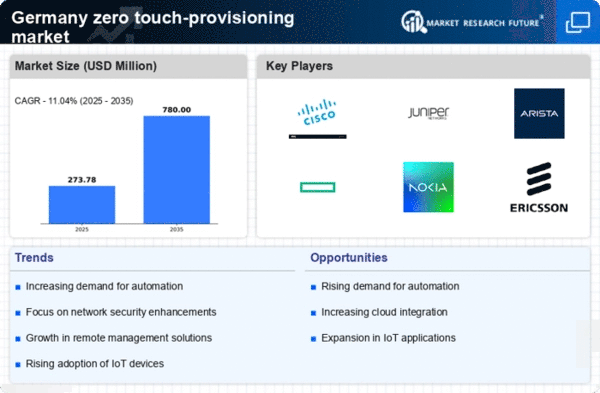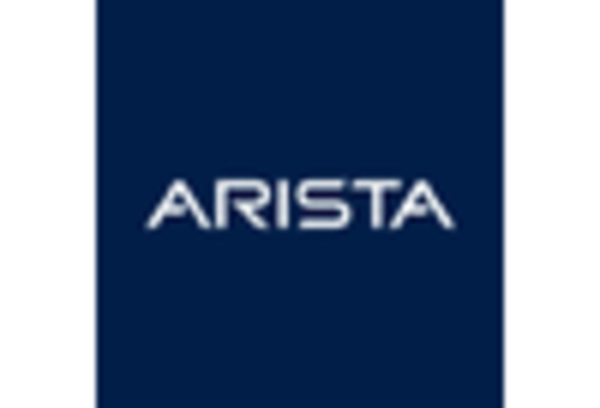Increased Focus on Cost Efficiency
Cost efficiency remains a critical driver for the zero touch-provisioning market in Germany. Organizations are under constant pressure to optimize their IT budgets, and zero touch-provisioning presents a compelling case for reducing costs associated with device setup and maintenance. By automating the provisioning process, companies can significantly lower labor costs and minimize the need for extensive IT support. Recent studies indicate that businesses can save up to €200 per device by implementing zero touch-provisioning solutions. This financial incentive is particularly appealing to small and medium-sized enterprises (SMEs) that may lack the resources for traditional provisioning methods. As the emphasis on cost efficiency continues to grow, the zero touch-provisioning market is likely to expand in response to these economic pressures.
Rising Demand for Remote Management
The zero touch-provisioning market in Germany is experiencing a notable surge in demand for remote management solutions. As organizations increasingly adopt remote work policies, the need for efficient device management without physical intervention becomes paramount. This trend is reflected in the growing number of enterprises seeking to streamline their IT operations, which has led to an estimated growth rate of 25% in the market. Companies are looking for ways to reduce operational costs while enhancing productivity, and zero touch-provisioning offers a viable solution. By enabling devices to be configured automatically upon connection to the network, businesses can minimize downtime and improve user experience. This shift towards remote management is likely to continue, further propelling the zero touch-provisioning market in Germany.
Regulatory Compliance and Data Security
In Germany, regulatory compliance and data security concerns are increasingly influencing the zero touch-provisioning market. With stringent data protection laws such as the General Data Protection Regulation (GDPR), organizations are compelled to adopt solutions that ensure compliance while maintaining operational efficiency. Zero touch-provisioning offers a way to automate device configuration in a manner that adheres to these regulations, thereby reducing the risk of human error. Companies are recognizing that implementing secure provisioning processes is not only a legal obligation but also a competitive advantage. As the focus on data security intensifies, the zero touch-provisioning market is likely to benefit from organizations prioritizing compliance and security in their IT strategies.
Technological Advancements in Networking
Technological advancements in networking infrastructure are playing a pivotal role in shaping the zero touch-provisioning market in Germany. The advent of 5G technology and enhanced Wi-Fi standards has created an environment conducive to the deployment of zero touch-provisioning solutions. These advancements enable faster and more reliable connections, which are essential for the seamless operation of automated provisioning processes. As organizations upgrade their networking capabilities, the demand for zero touch-provisioning is expected to rise. Furthermore, the integration of artificial intelligence and machine learning into networking solutions is likely to enhance the efficiency of provisioning processes, making them more adaptive and responsive. This technological evolution is anticipated to drive growth in the zero touch-provisioning market as businesses seek to leverage these innovations.
Growing Need for Scalability in IT Operations
The zero touch-provisioning market in Germany is being driven by the growing need for scalability in IT operations. As businesses expand and evolve, the ability to quickly and efficiently provision new devices becomes crucial. Zero touch-provisioning allows organizations to scale their IT infrastructure without the need for extensive manual intervention, thereby facilitating rapid growth. This capability is particularly valuable for companies experiencing rapid changes in workforce size or operational demands. The market is projected to grow by approximately 30% as organizations increasingly recognize the importance of scalable solutions in maintaining competitive advantage. The flexibility offered by zero touch-provisioning is likely to be a key factor in its adoption across various sectors.
















